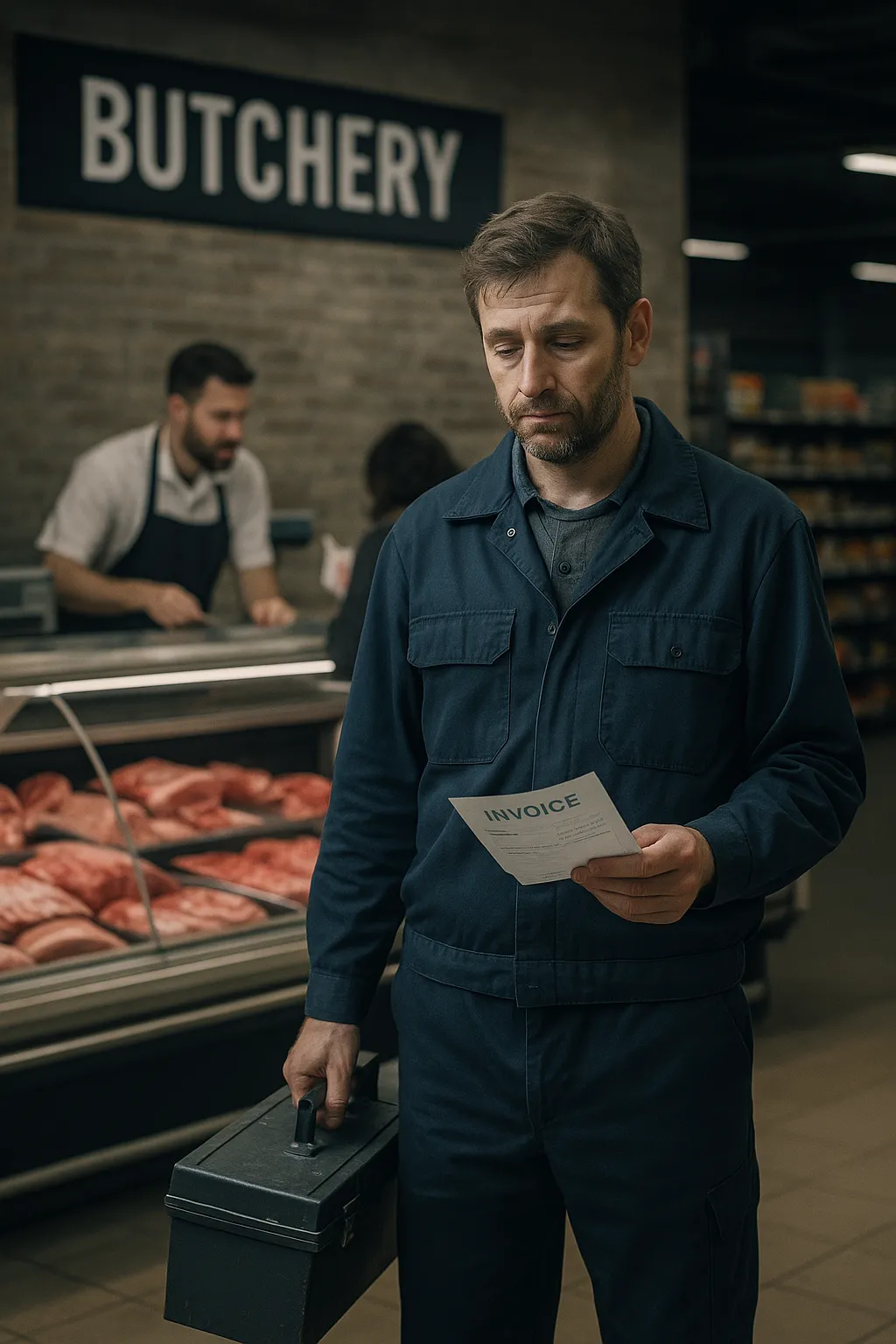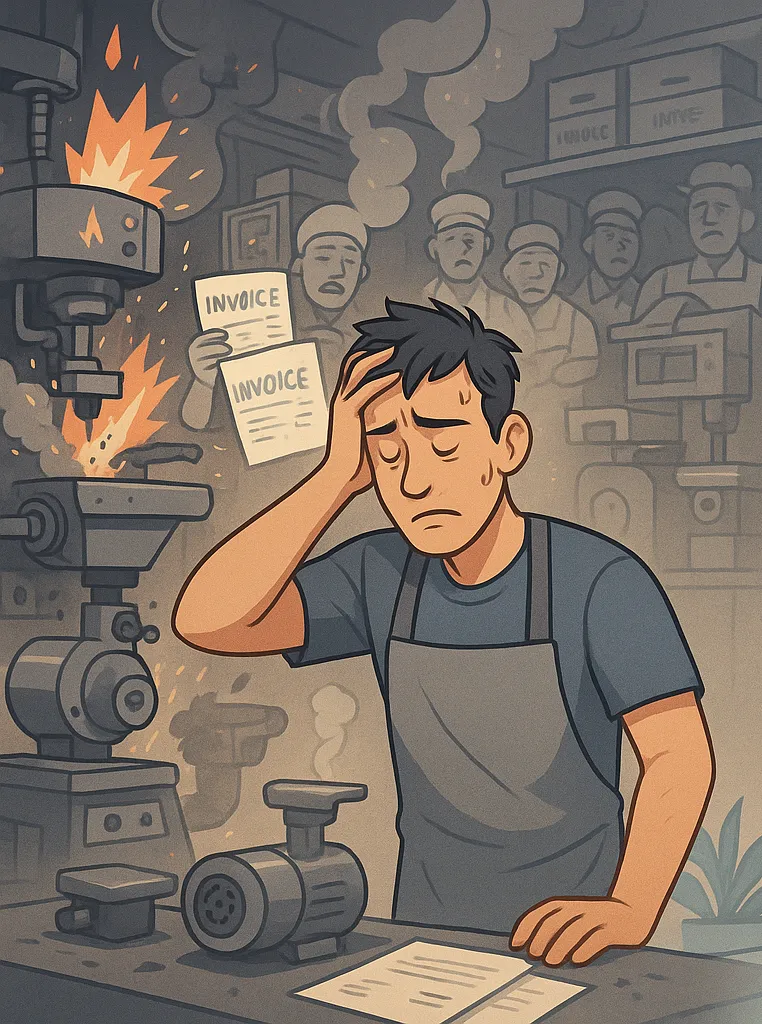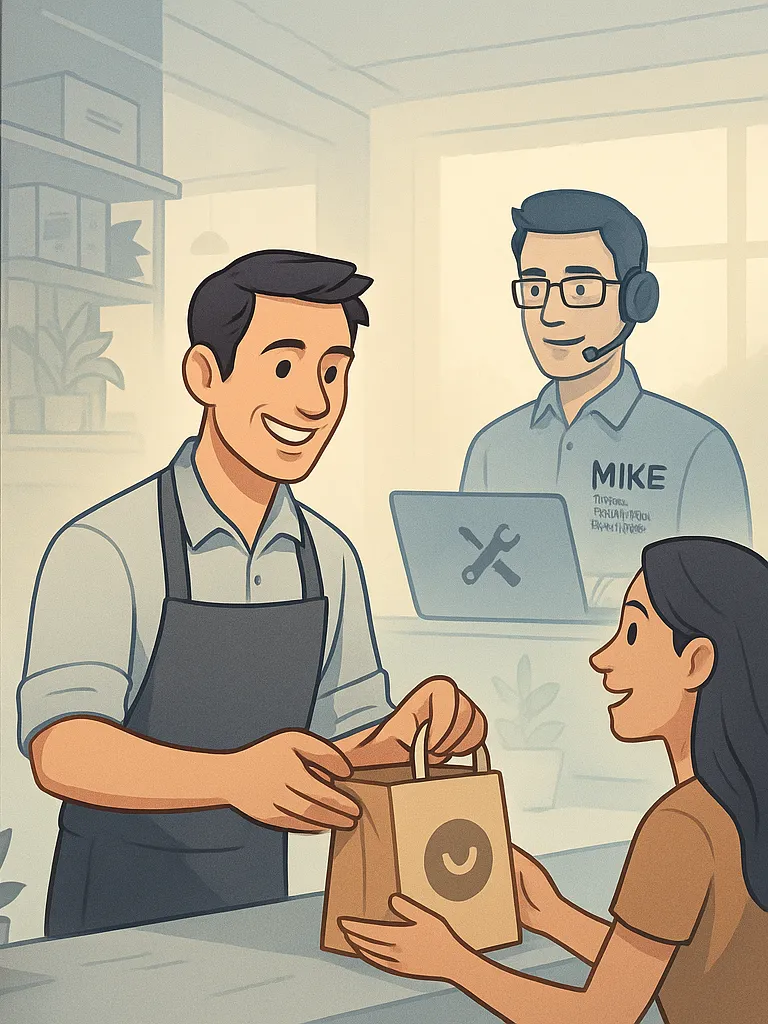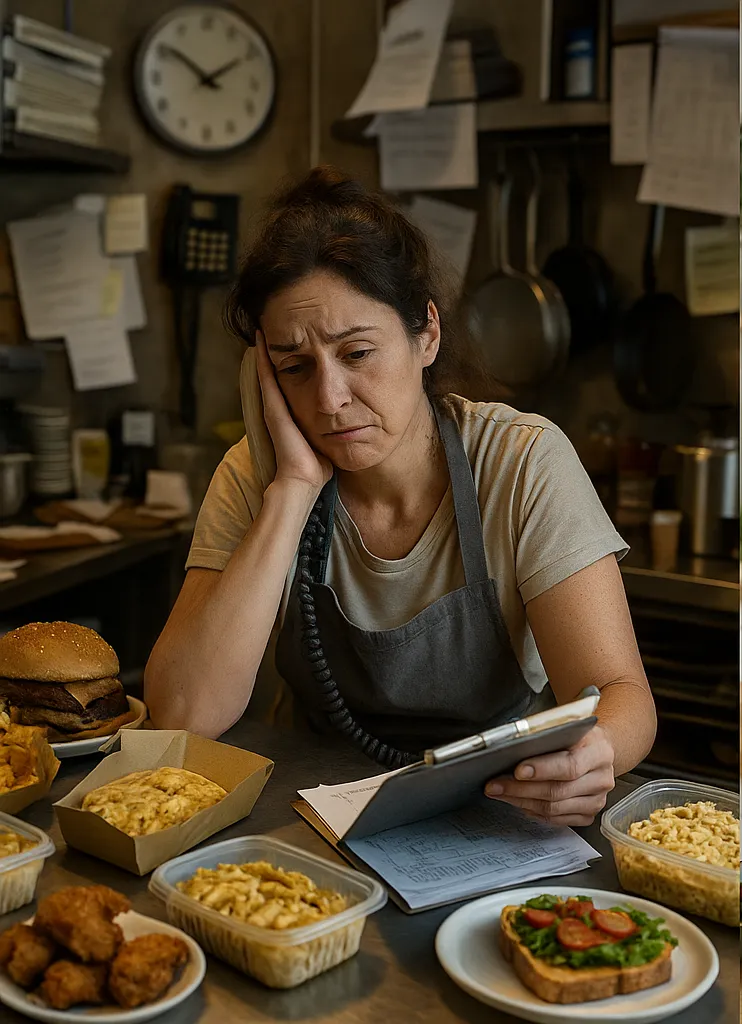About Me
I care deeply about three things: my family, good food and proving that small food businesses don’t need big teams - they need better support.
Growing up, I loved sport but never individual ones. I played tennis as a kid, but only enjoyed it when it was doubles. What I really loved was being part of a team — rugby, football, cricket.
I often ended up as captain. I'm not sure why but it definitely wasn't because I was the best player, I think it was because I genuinely cared about how the whole team worked. I wasn’t ruthless or ultra-competitive. I didn’t train obsessively or try to be the best I could be.
But I was the glue. The organiser. The one trying to lift the standard without crushing the spirit. The one who always thought 'there is a better way'
That mindset has shaped everything I’ve done since - especially how I run a business, how I help others, and why I believe small teams can do big things with the right support.


On The Outside Looking In
For over 12 years, I’ve run a food equipment supply and service business, working with butchers, restaurants and food producers across the UK.
In theory, we were part of their team - keeping the machinery running, fixing breakdowns, helping things flow behind the scenes.
But in reality, we were always on the outside.
The engineer. The supplier. The person who sent the invoice after the problem got sorted.
We were necessary, but not valued. Helpful, but never quite trusted
No one likes the person who turns up when something’s gone wrong and then charges for it - even if they fix it fast.
That feeling stuck with me:
I wanted to contribute more than a quick fix.
I wanted to help these businesses grow, not just stop them from grinding to a halt.
Here’s what I’ve come to realise after 12 years in the game:
Most small business owners aren’t lazy, disorganised or unambitious.
They’re just overwhelmed. They’re spinning plates, putting out fires, and trying to stay upright in a system that rarely makes space for thinking, planning or clarity.
I’ve lived it. We’ve had months where we shrank instead of grew. Faced tax bills we couldn’t cover. Lost sight of our customers because we were too busy fixing everything else.
And if you’re the kind of person who leads with care rather than control, that pressure hits even harder. Eventually, I stopped and asked:
What if the problem isn’t the business owner? What if the problem is the way we expect them to operate?
The Turning Point
Things started to shift when I discovered Entrepreneurs Circle and Nigel Botterill’s approach to building a business that actually works.
Until then, I believed that if you just kept your head down, did good work, and treated people well, things would look after themselves.
They don’t. Not in business. Not in food.
If you want to build something that lasts - something that grows and serves others - you need more than hard work and good intentions.
You need systems
You need clarity
You need to understand how to make money, keep money, and use it wisely
Most of all, you need space - to step back and think about your customer, their problems, their world, their choices.
Because most business owners are stuck in a cycle of firefighting they don’t have time to build something remarkable - even though many of them could.


That realisation changed everything for me.
It made me realise my business was part of the problem.
Yes, we were reliable. We showed up for emergency repairs and did planned maintenance. We helped people keep their equipment running.
But we weren’t contributing ideas. We weren’t helping anyone grow. We were focused on machines, not the business behind them.
We weren’t asking the big questions:
What’s holding you back from serving more customers?
What’s costing you time, energy, or sales?
What could we fix that would actually move the needle?
Instead, we kept the wheels turning - and stayed out of the way.
And once I saw that clearly, I knew I couldn’t just carry on being useful. I had to become valuable.
It gave me a new mission: to help small food businesses grow without losing what makes them special and without burning themselves out in the process.
It's why at Cibamat I created 'Mike' the Virtual Operations Manager who takes away all the headaches of running a food business and frees up owners and senior leaders to properly focus on their customers.
Outsourced support that feels part of your team.
My Mission
I believe small businesses — especially in food — deserve better.
Better support.
Better thinking.
Better outcomes.
Right now, the system is set up to wear them down.
Owners are expected to do everything: cook, lead, clean, fix, hire, market, negotiate, account and somehow still make time to innovate.
Most of them are so busy surviving, they don’t have space to think clearly about growth, customers or quality.
At the same time, food in Britain is becoming more expensive, more processed and, frankly, more disappointing.
Choice is up, standards are down and most meals are now mass-produced imitations of the real thing.


I want to help change that.
I believe in a different future:
One where small, smart, well-supported businesses produce incredible food at scale - food that’s local, affordable, and good enough to compete with the big guys.
That means simplifying what’s on offer.
Selling more of fewer things.
And focusing deeply on what customers actually want, not just what the spreadsheet says might sell.
But for that to happen, business owners need space.
They need the daily firefighting taken off their plate.
They need support that feels internal, not just outsourced.
That’s the mission I’m on.
To help small businesses stay lean, focused, and brilliant and to build a food culture in Britain we can be proud of.
